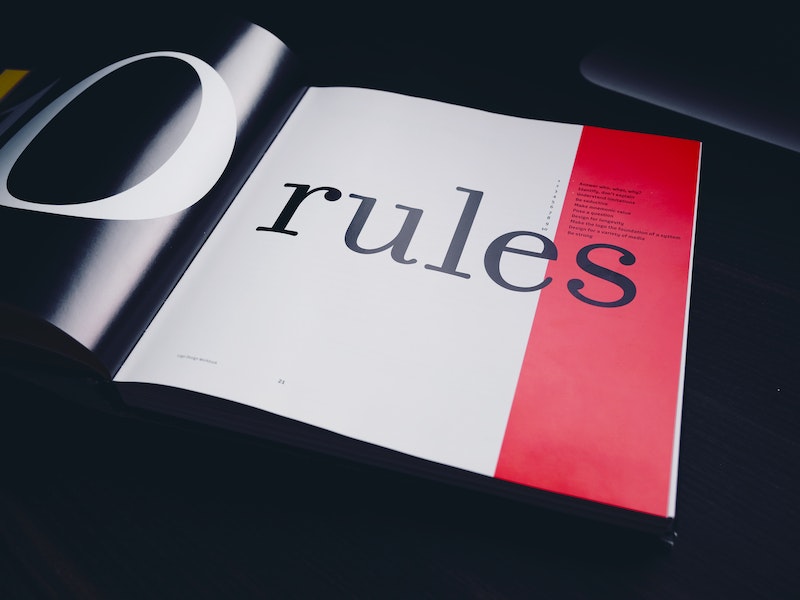Michael S. Simone, Esq.
Managing Attorney

Are you a homeowner dealing with unenforceable Home Owner/Condo Association rules? It can be frustrating to feel bound by regulations that are not being upheld. Understanding your rights as a homeowner is crucial when challenging contradictory or discriminatory rules. In this article, we will explore why certain HOA/Condo Association rules may be unenforceable and discuss potential solutions for homeowners facing this issue. Let us delve into the world of HOA/Condo Association regulations and empower you to take action.
A Cinnaminson HOA attorney from The Simone Law Firm can help you address your HOA issues. Contact us today.
Understanding the HOA/Condo Association regulations can be challenging for homeowners. With a multitude of rules and regulations to abide by, it is important to know which ones are enforceable and which ones are not.
Unenforceable HOA/Condo Association rules are those that cannot be legally enforced or upheld by the Condominium/Homeowners Association. These could include restrictions on paint colors, types of plants in the yard, or even the number of pets allowed in a household. While these rules may exist in the governing documents, they may not hold up in a court of law if challenged.
Homeowners should familiarize themselves with their specific HOA/Condo Association rule book and consult legal counsel if they have concerns about any particular rule.
Despite the existence of state or federal laws, there may be contradictions with unenforceable HOA/Condo Association rules. These contradictions arise when the interpretation of the law by HOA/Condo conflicts with the intent and provisions of state or federal legislation.
In some cases, HOA/Condo Associations may adopt rules that go beyond what is permitted under state or federal law, leading to conflicts and legal challenges.
State laws vary regarding the extent of power given to HOA/Condo Associations and their ability to enforce rules. While some states provide broad authority to HOA/Condo Associations, others have strict limitations on their rule-making abilities. Similarly, federal laws such as the Fair Housing Act and other anti-discrimination statutes may supersede specific HOA regulations if they violate these laws.
When faced with contradictory situations between unenforceable HOA/Condo Association rules and state or federal laws, it is crucial to consult legal professionals who can guide navigating these complexities while ensuring compliance with applicable legislation.
Selectively enforced rules in HOA/Condo Associations can create a sense of unfairness and frustration among residents. Homeowners often rely on property management companies to consistently implement the HOA/Condo Association’s rules. However, some restrictions may only be applied when convenient or when certain individuals are targeted. This selective enforcement can lead to a breakdown of trust within the community and even legal disputes.
It is crucial for homeowners to understand their rights and responsibilities under state and federal laws governing HOA/Condo Associations. Consulting with attorneys can help navigate these unenforceable HOA rules and protect homeowners’ interests in court if necessary.
Discriminatory rules in the HOA/Condo Association can create a sense of unfairness and frustration among residents. These rules, which target certain individuals or groups based on their protected class status, go against the principles outlined in the Fair Housing Act.
HOA/Condo Associations cannot discriminate against residents based on race, color, religion, sex, national origin, familial status, disability, gender identity, or sexual orientation. However, some HOA/Condo Associations may still implement discriminatory laws that infringe upon these rights. This can lead to feelings of exclusion and marginalization among residents who identify with these protected classes.
It is important for HOA/Condo Associations to recognize and address any discriminatory rules within their communities to ensure equal treatment and foster a sense of belonging for all residents.
You may find it frustrating when faced with unreasonable or arbitrary restrictions in your HOA/Condo Association. These unenforceable HOA/Condo Association rules can make you feel like your rights as a homeowner are being infringed upon. They can limit your ability to enjoy and personalize your own property, causing unnecessary stress and dissatisfaction.
It is important for HOA/Condo Associations to strike a balance between enforcing reasonable guidelines and respecting the rights of individual homeowners. By reviewing and revising these unenforceable rules, associations can create a more harmonious environment that promotes both community cohesion and personal satisfaction for all residents.
Rules in HOA/Condo Associations can be enacted without a majority vote, leading to potential conflicts and disagreements among residents. The governing documents dictate by what percentage is required to pass a new rule. This lack of democratic decision-making can result in unenforceable HOA/Condo Association rules that may violate individual rights or fail to address the needs and concerns of the community as a whole.
When these rules are implemented without proper consideration, they may create unnecessary tension between neighbors and undermine the sense of belonging within the association. Furthermore, fines for non-compliance with such rules can fuel the fire, causing resentment and further division among residents.
There are instances where HOA/Condo Association rules may be unenforceable. Whether due to contradictions with state or federal laws, selectively enforced regulations, discriminatory practices, or unreasonable restrictions, these situations can create frustration and legal challenges for homeowners.
It is essential for individuals facing such issues to seek the guidance of a qualified Cinnaminson HOA attorney from The Simone Law Firm who can provide legal advice and assistance in navigating these complex matters. By doing so, homeowners can protect their rights and find a resolution to their HOA/Condo Association disputes.
Contact us today to schedule a consultation.
The core values of our team distinguish our firm from all others. We know there are many choices in legal representation and we appreciate you considering our firm for your legal needs. Our firm has maintained great relationships with our clients with some lasting over twenty (20) years. Our satisfied clients demonstrate the dependable, trustworthy, honest and efficient representation that we provide in order to vigilantly protect and serve our clients’ legal needs.